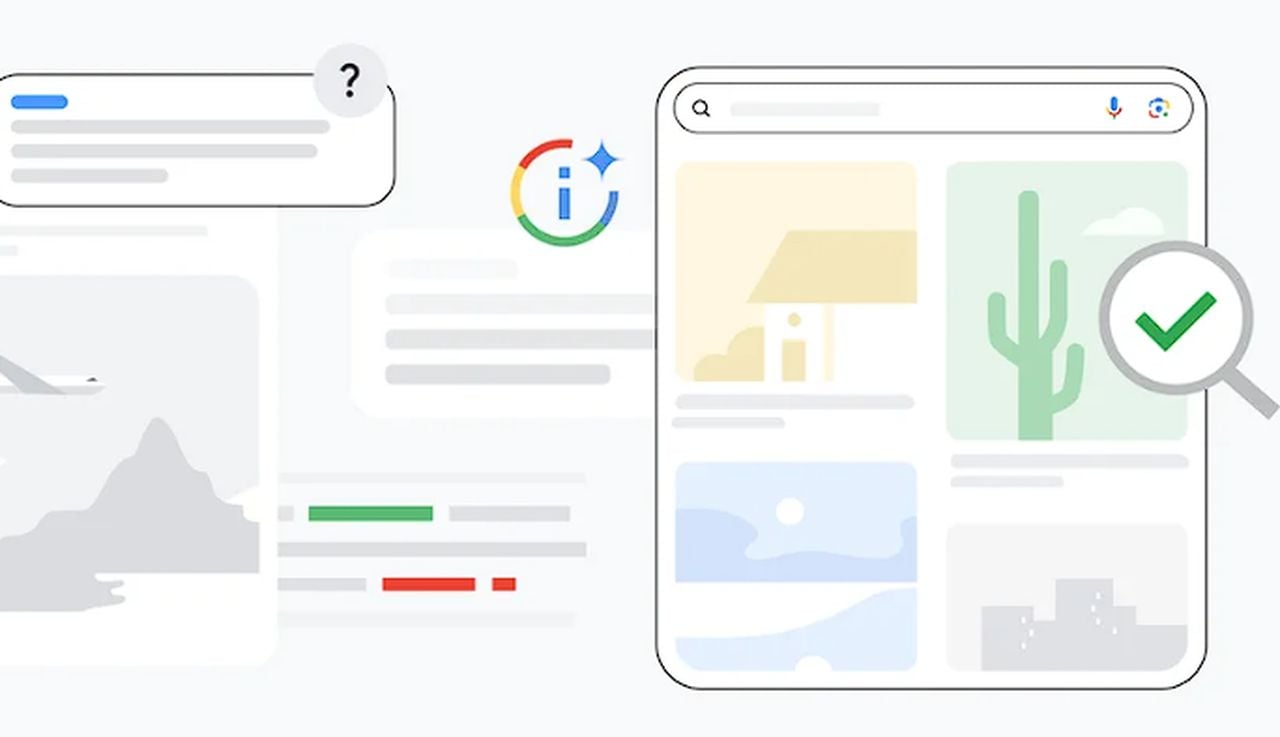In an era where misinformation and disinformation are rife, verifying the authenticity of online images and sources has become increasingly crucial. Google has this week launched three new features to tackle this issue. These features include the ‘About this image‘ tool, the expansion of the Fact Check Explorer, and the introduction of the Search Generative Experience (SGE). Each feature is designed to provide users with more context and information about the images and sources they encounter online, ultimately promoting a more reliable and trustworthy digital environment.
About this image
The first feature, About this image, is a tool designed to provide users with comprehensive information about an image’s history, usage, and metadata. This tool, now available to English language users globally, gives indications of AI generation or enhancement, helping users discern whether an image has been altered or manipulated in any way. To access this feature, users can click on the three dots on an image in the Google Images results or click “more about this page” in the About this result tool on search results. This tool effectively provides a backstory for each image, allowing users to better understand its origins and context.
Fact Check Explorer
The second feature Google has introduced is the expansion of the Fact Check Explorer. This tool allows users to upload or copy the URL of an image to see if it has been featured in an existing fact check. It also provides an overview of the different contexts associated with the image and their evolution over time, giving users a more comprehensive understanding of the image’s credibility. In addition to this, Google is introducing a beta of Image Search functionality in FactCheck Claim Search API, which will allow approved journalists and fact checkers to search the fact-check image corpus on Fact Check Explorer via an API and integrate the knowledge into their own solutions. This extension of the Fact Check Explorer not only benefits individual users but also empowers journalists and fact-checkers in their mission to combat misinformation.
Search Generative Experience (SGE)
The third feature, the Search Generative Experience (SGE), uses generative AI to provide descriptions of some sources, supported by information on high-quality sites that talk about that website. These descriptions will appear in the “more about this page” section of About this result for some sources where there isn’t an existing overview from Wikipedia or the Google Knowledge Graph. This innovative use of AI technology helps fill in the gaps where traditional information sources may be lacking, providing users with a more complete picture of the source’s credibility.
Other articles we have written that you may find of interest on the subject of Search Generative Experience :
Misinformation and disinformation
These features are part of Google’s ongoing efforts to help users verify the authenticity and reliability of online images and sources. This initiative comes in response to a 2023 study by the Poynter Institute’s MediaWise, which found that 70% of respondents were not confident in their ability to tell when online images are authentic and reliable. By providing users with more tools to verify the credibility of online images and sources, Google is taking a significant step towards creating a more trustworthy digital environment.
These new features from Google represent a significant stride in the fight against misinformation and disinformation online. By giving users the tools to verify the authenticity of online images and sources, Google is fostering a more informed and discerning digital community. It’s a reminder that as we navigate the digital landscape, it’s not just about consuming information—it’s also about understanding its origins, context, and credibility.
Verify online images and sources
In today’s digital world, information travels faster than ever before, but not all of it is accurate or trustworthy. That’s why verifying online images and sources is so important. Think of it like this: when you’re doing research for a project or trying to understand a current event, you want to make sure you’re getting the whole picture, not just someone’s twisted version of it. Incorrect or misleading information can lead to misunderstandings, spread false rumors, and even have serious consequences in some situations.
For example, let’s say you come across a viral image on social media that claims to depict a major event like a protest or a natural disaster. If that image is doctored or taken out of context, it could dramatically alter your perception of the event. You might end up forming an opinion based on false premises, and that’s a problem. Tools that help verify the authenticity of images and sources enable you to separate fact from fiction, giving you a clearer understanding of the world around you.
Additionally, the credibility of sources is key when it comes to academic work. If you’re writing an essay or giving a presentation, you want to base your arguments on reliable information. Using verified sources adds weight to your points and makes your work more persuasive. And beyond the classroom, being able to discern reliable information from unreliable sources is a critical skill for participating in civic matters, like voting or community organizing. Overall, verifying online images and sources empowers you to make more informed decisions and be a more responsible digital citizen.
Image Credit : Google
Filed Under: Technology News, Top News
Latest aboutworldnews Deals
Disclosure: Some of our articles include affiliate links. If you buy something through one of these links, aboutworldnews may earn an affiliate commission. Learn about our Disclosure Policy.







